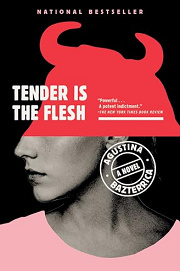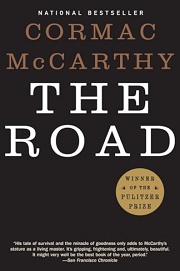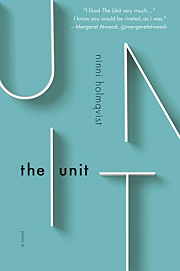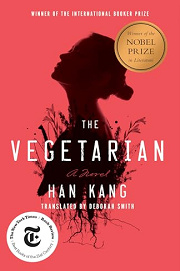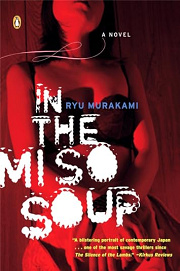Share your thoughts in a quick Shelf Talk!
Tender Is the Flesh by Agustina Bazterrica
"In a chilling near-future where society has normalized the unthinkable, one man’s job forces him to confront the price of survival—and his own complicity. Stark, provocative, and impossible to shake, Tender Is the Flesh is a razor-edged dystopia that dares you to look away and makes sure you can’t."
Have you read this book? Share what you liked (or didn’t), and we’ll use your answers to recommend your next favorite read!
Love Tender Is the Flesh but not sure what to read next?
These picks are popular with readers who enjoyed this book. Complete a quick Shelf Talk to get recommendations made just for you! Warning: possible spoilers for Tender Is the Flesh below.
In Tender Is the Flesh, did you enjoy ...
... a quietly monstrous system that normalizes harvesting human bodies?
Never Let Me Go by Kazuo Ishiguro
If the way Marcos oversees the processing plant—sanitizing slaughter with euphemisms like “heads” and “special meat”—lingered with you, you’ll be gripped by how Never Let Me Go reveals Hailsham’s “students” (Kathy, Ruth, Tommy) are raised for organ donations. The same soft-spoken horror applies: polite caretakers, tidy rules, and a culture that makes the unthinkable feel routine. Like Marcos’s final choice to embrace the system for the child, the rumored “deferrals” here tempt characters with hope before exposing the machine’s cold logic.
... unyielding bleakness, human predation, and survival stripped to bone?
The Road by Cormac McCarthy
If the unrelenting, blood-and-steel atmosphere of Tender Is the Flesh stuck with you—the killing floor tours, the breeding centers, the final, chilling acceptance—then The Road will haunt you. A father and son trek through ash while dodging cannibal gangs; the pantry scene in the basement is as stomach-turning as any scene in Marcos’s plant. The prose is spare, the world merciless, and every decision cuts as clean and cold as a slaughterhouse blade.
... a protagonist’s uneasy complicity inside a body-commodifying bureaucracy?
The Unit by Ninni Holmqvist
If Marcos’s role—efficiently managing kills while nursing private grief and accepting a “female” as a gift—fascinated you for its moral knots, you’ll find Dorrit Weger’s resignation in The Unit equally piercing. Sent to the Second Reserve Bank Unit for biological material, she acclimates, falls in love, and weighs intimacy against a system that deems her “dispensable.” Like Marcos’s final, devastating choice, Dorrit’s compromises force you to ask where survival ends and surrender begins.
... body-as-morality and the horror of consumption made intimate?
The Vegetarian by Han Kang
If the ethical nausea of raising, breeding, and butchering “heads”—culminating in Marcos’s act after the birth—stayed under your skin, The Vegetarian turns that revulsion inward. Yeong-hye’s refusal to eat meat spirals into obsession, family violence, and bodily erasure. The infamous body-painting episode and her later insistence on becoming “plant-like” echo the novel’s core question: what does a human body owe to others—and what happens when it refuses?
... graphic, visceral violence used to expose a society’s moral rot?
In the Miso Soup by Ryu Murakami
If the graphic tour of slaughter in Marcos’s world—stunners, hooks, and euphemized butchery—compelled you, brace for the Roppongi nightlife in In the Miso Soup. Kenji guides an American, Frank, whose dead-eyed violence culminates in an unforgettable karaoke-bar massacre. The gore isn’t spectacle; it’s a scalpel revealing the rot beneath neon surfaces, much like the “clean” rhetoric of processing plants fails to hide what’s being done to human beings.
Unlock your personalized book recommendations! Just take a quick Shelf Talk for Tender Is the Flesh by Agustina Bazterrica. It’s only a few questions and takes less than a minute.
